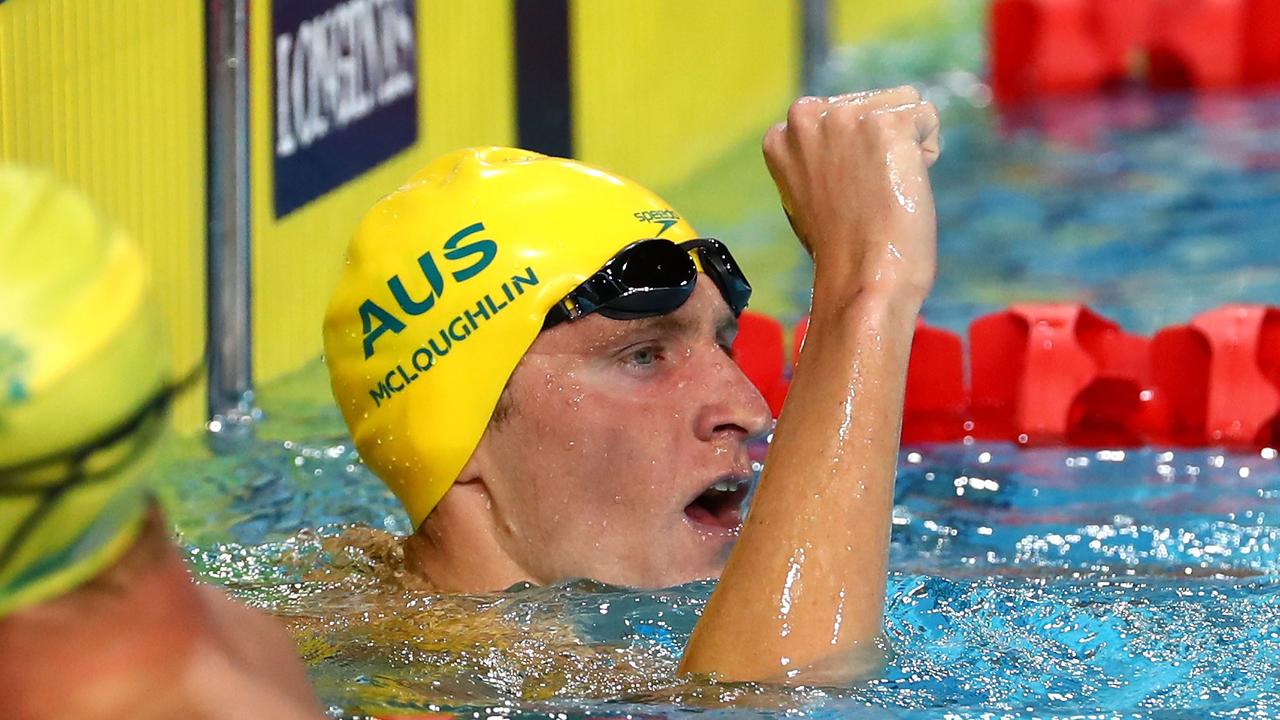Commonwealth Games Flashback: Geoff Huegill’s incredible journey back to the top
GEOFF Huegill remembers the 51 second race like it was yesterday. After decade-long rollercoaster life, during which he ballooned to 138kg, he finally found his way back to the top of the podium on a magical night in Delhi.
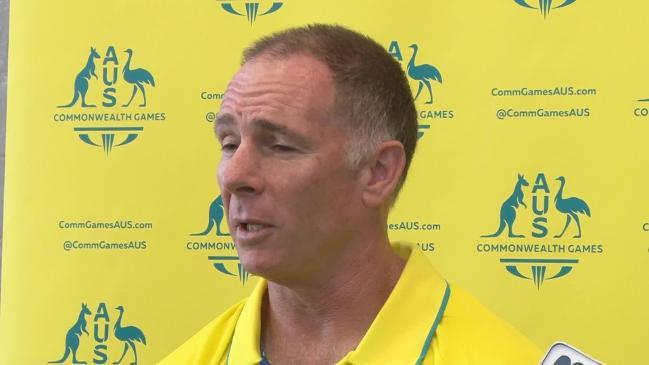
Swimming
Don't miss out on the headlines from Swimming. Followed categories will be added to My News.
GEOFF Huegill already had five Commonwealth Games golds when he stood behind the blocks for the final of the 100m butterfly at the Delhi Games.
But they were from another lifetime.
The Huegill that lined up in Kuala Lumpur in 1998 and Manchester in 2002, was a fit and healthy young man who knew little of the world outside of swimming.
Almost a decade later, Huegill had been on a physical and emotional rollercoaster ride — his weight ballooning to 138kg as he embraced life away from the confines of the pool and the regimented lifestyle of an elite athlete.
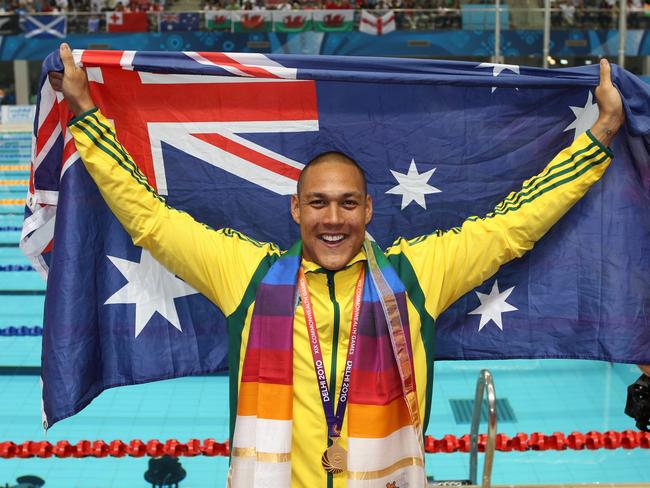
The long journey back to full fitness was a win in itself. But the best was to come in Delhi, where Huegill had the best swim of his life to return to the top of the podium.
“I still remember it like it was yesterday,” said Huegill, who is now based on the Gold Coast with wife Sara and daughters Mila and Gigi.
“To me, it was a journey in my life that meant a hell of a lot because I was at odds before I even started the journey.
“It was a moment in time where everything just worked out right.”
Unknown to most, Huegill had approached then Australian head coach Alan Thompson in 2008, asking him to register him with world swimming body FINA for drug testing in case he decided to make a competitive comeback after returning to training as he worked his way back to fitness.
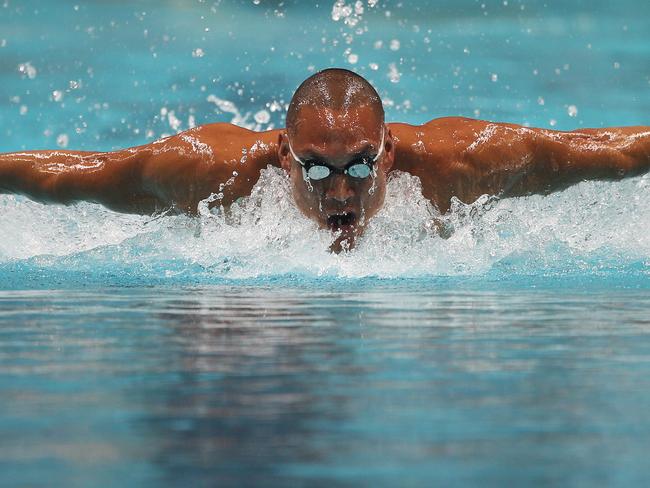
“I was still hovering around a good 120kg, I reckon and had a good chat to Thommo and told him what I was planning and asked him to submit (the necessary paperwork) for me,” Huegill said.
“I said: ‘If I decide to swim, I decide to swim but if I don’t, there’s no harm done’.
“But let’s just keep it under wraps because the last thing I wanted to do was let everyone know my plans.
“That was really the start of it.
“I knew that once the Olympics were over at the end of the year I’d be itching to be a part of it and see what I could do because I would have compared the times.
“And lo and behold, I watched the trials and that started to build the hunger.”
Linking with Grant Stoelwinder at the NSW Institute of Sport was another win for Huegill, who said the training environment with the likes of Libby Trickett, Eamon Sullivan, Andrew Lauterstein and Therese Alshammar was “the best squad I have ever been involved with”.
That helped him win a place on the Delhi team, where Huegill was able to use years of experience to his advantage.
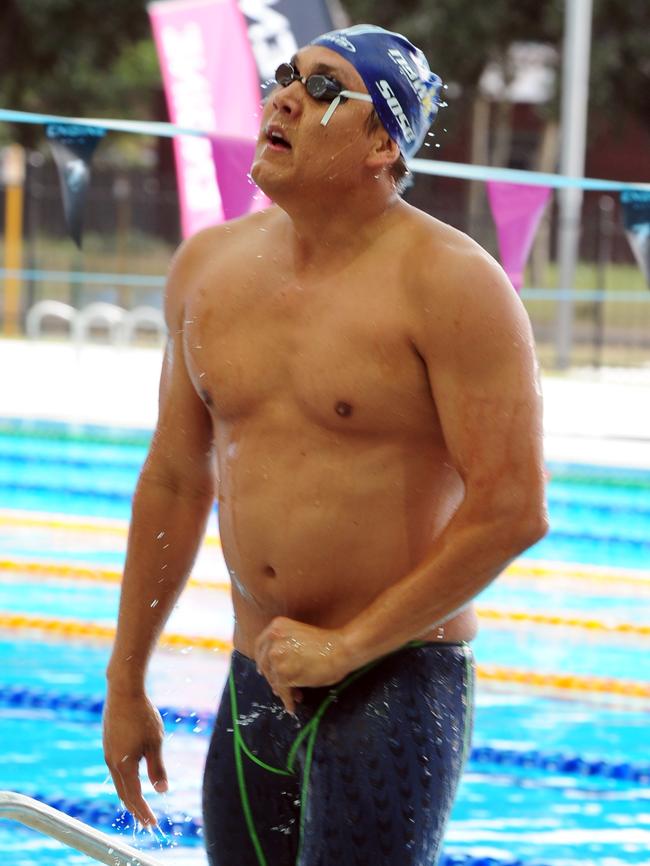
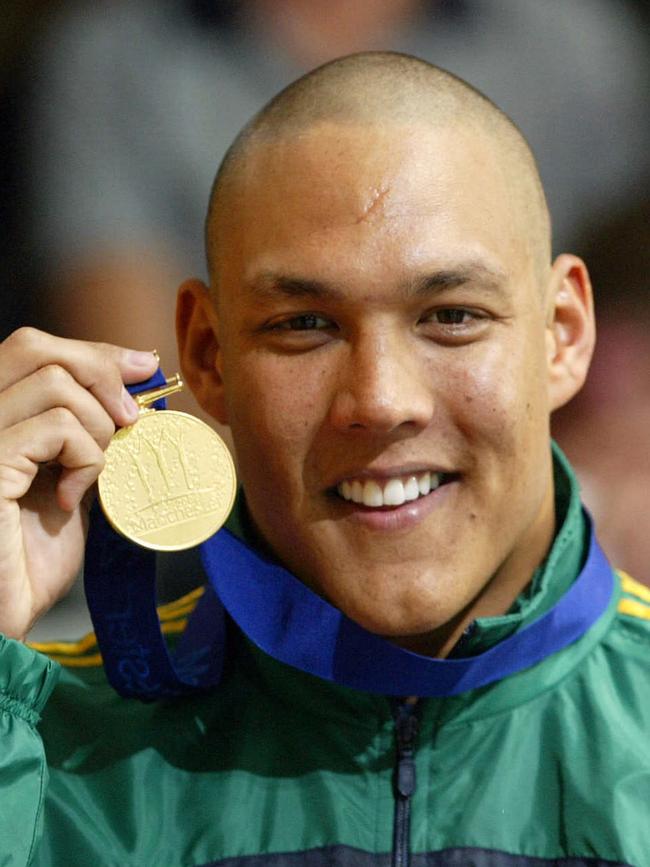
After winning a silver medal in the 50m butterfly, Huegill already felt like a winner.
And while the shorter event had always been his forte — he was a former world record-holder — the 100m was the blue riband race and the one he coveted most.
“Leading into the 100m then, it was all about strategy, I understood what needed to be done right down to the trip to the pool,” he said.
“One trip could take 30 or 40 minutes to the pool but depending on your driver, it could take up to an hour and 20 minutes.
“So from a strategic point of view, it was just much easier to cut your losses and stay at the village and not even bother about going to the pool for the heats that morning and then just do the one trip for the day.”
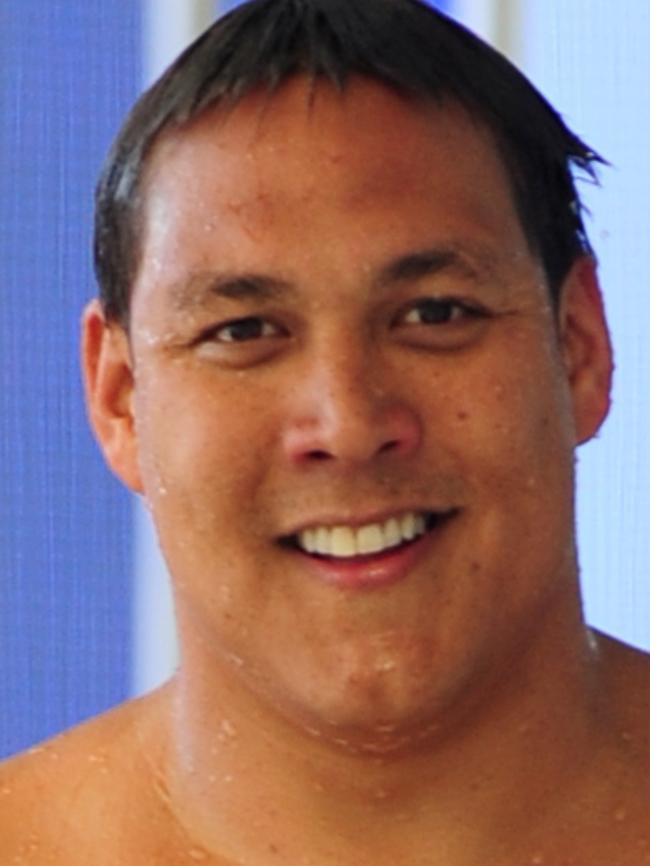
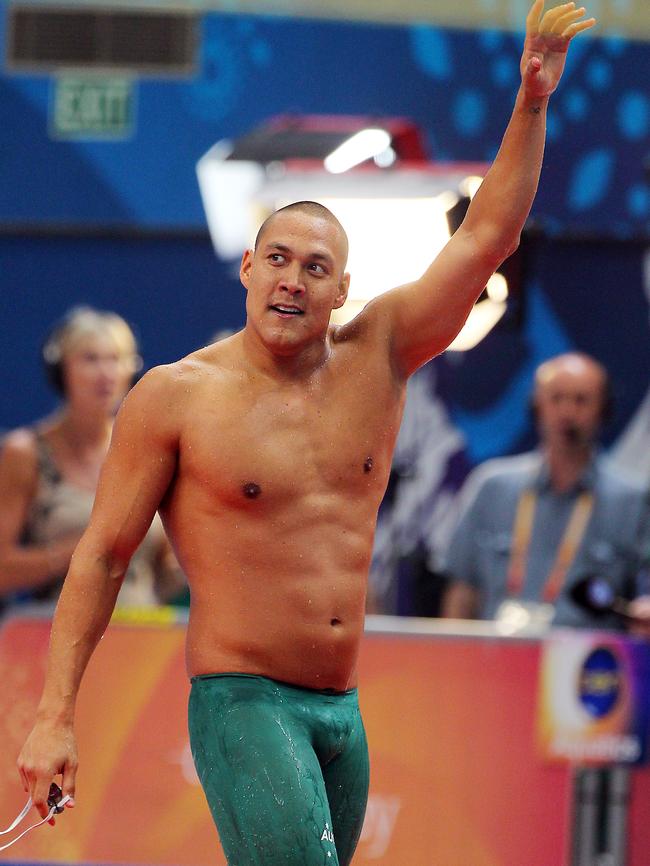
Kenyan Jason Dunford, the man who beat Huegill in the 50m, had sealed lane four in the final and went in as favourite, but at 31, the Aussie put together the race of his life.
“I remember being in lane five. I didn’t want to have the pressure of being in lane four and being the favourite going into it,” he said.
“I know that Jason Dunford was in lane four and all I had to do was sit on his shoulder and execute a different race strategy.
“It was the fastest time I’d ever done in history — all of the stars and planets and everything I’d learned just aligned for that moment in time.
“I look back now and I recognise how special it was to have that opportunity and how privileged I was to have a second bite of the apple.
“Because now we’re in the real world — and I love my family and my kids and everything else — but nothing will ever replicate that moment in time.
“That journey in itself is something that I don’t take for granted but value and appreciate what the 51 seconds it took to win gold gave me.”

